At the conference to summarize the work of examination and inspection of high school graduation exams for the period 2020-2024, preparing for the high school graduation exam from 2025 at the end of October, the Ministry of Education and Training officially announced that vocational certificate points will not be added to the high school graduation exam results.
OLD PROGRAM: TEACHING A VOCATION IS LIKE "RIDING A HORSE TO SEE THE FLOWERS"
Mr. Huynh Van Binh, Vice Principal of Hoang Hoa Tham High School (Binh Thanh District, Ho Chi Minh City), said that in the 2006 General Education Program, vocational subjects are organized in grades 10 and 11 with occupations such as electricity, information technology, cooking, photography, etc. This is a subject that is not calculated for the average score in the classification assessment but is a sufficient condition for completion of the high school program. In particular, according to the regulations of the 2006 General Education Program, after completing 105 lessons in grades 10 and 11, if students participate in the general vocational certificate exam, they will be given bonus points in the high school graduation exam score. Therefore, the goal of vocational subjects is determined to be an opportunity for students to apply in practice and reduce exam pressure.
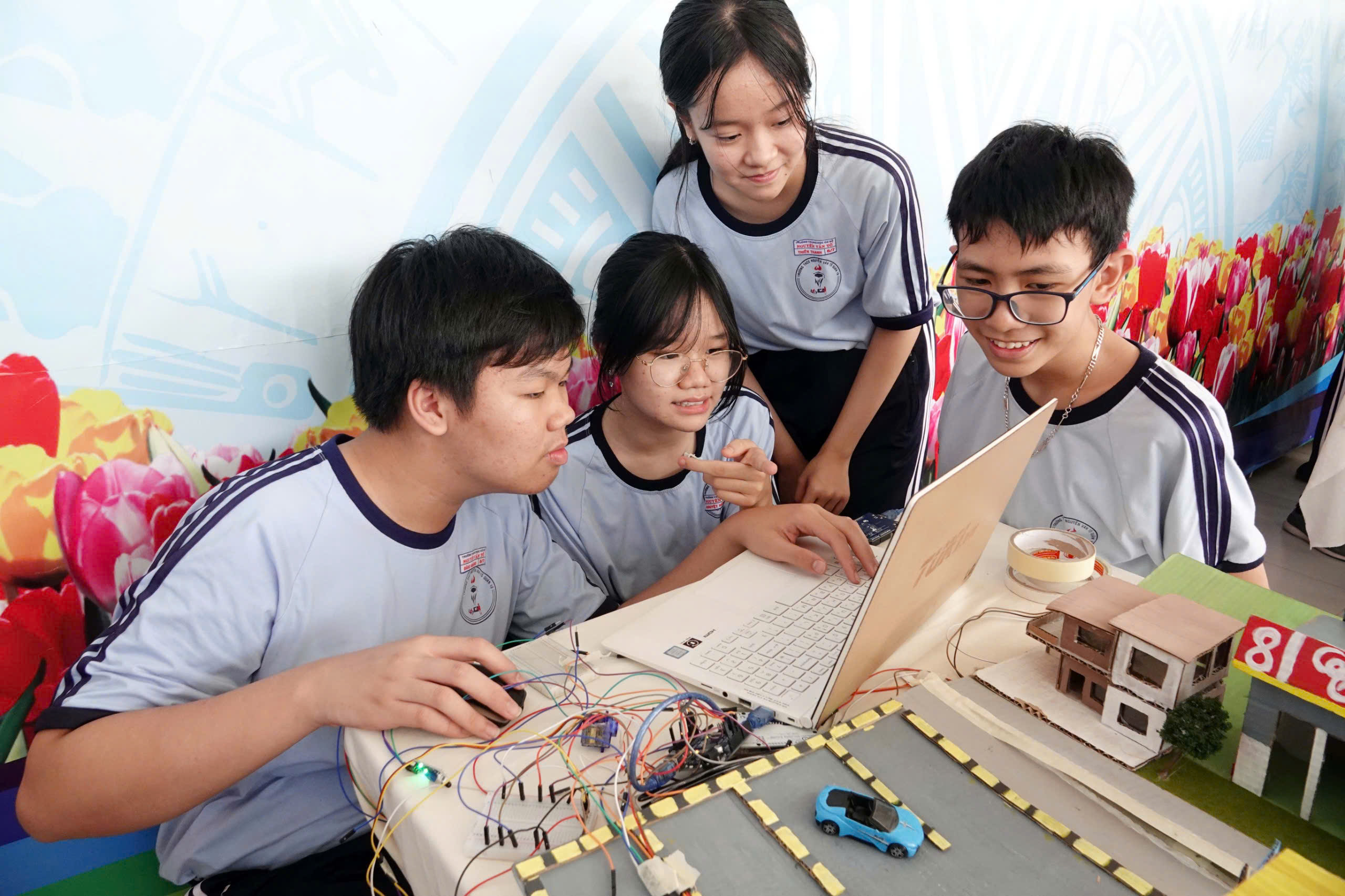
With the 2018 General Education Program, general occupations are replaced by life skills education and career guidance activities.
ILLUSTRATION: DAO NGOC THACH
However, because it is compulsory, some students choose "easy" vocational subjects such as sewing and cooking because they do not want to study "harder" subjects, even though they are practical, such as electricity and computer science. Therefore, many schools believe that general vocational subjects are organized in a "short-term" manner. Because the conditions and facilities for practice cannot meet the right goals.
T was once a "RESCUER" subject for students considering graduation.
This reality makes high school leaders believe that vocational subjects are not practical and essential because students do not need them. And when entering the workforce, the general vocational certificate granted is also not valuable when participating in the labor market. Therefore, a vice principal frankly said: "General vocational subjects are a "rescue" option for students who are in danger of their high school graduation exam scores. Therefore, students with good academic performance, top schools often just study to finish and vice versa, students with low academic performance, lower schools often choose to take the certificate exam after completing the subject content".
Mr. Huynh Thanh Phu, Principal of Bui Thi Xuan High School (District 1, Ho Chi Minh City), said that vocational subjects are often taught in extra classes or at times that the school can arrange, and are not considered an essential part of the curriculum. Often, vocational subjects include cooking, sewing, household electrical repair, farming and animal husbandry, photography, etc.
This principal acknowledged that most teachers of vocational subjects encounter certain difficulties. Due to the lack of equipment and teaching conditions, the transfer of knowledge and skills is not guaranteed. Meanwhile, some students show no interest or take vocational subjects lightly because they are not counted in the final score. For students living in rural areas, learning farming or animal husbandry skills is sometimes useful and has practical meaning for life. Meanwhile, in urban areas, many students only participate in the course without being truly interested or understanding the value of the vocational subject.
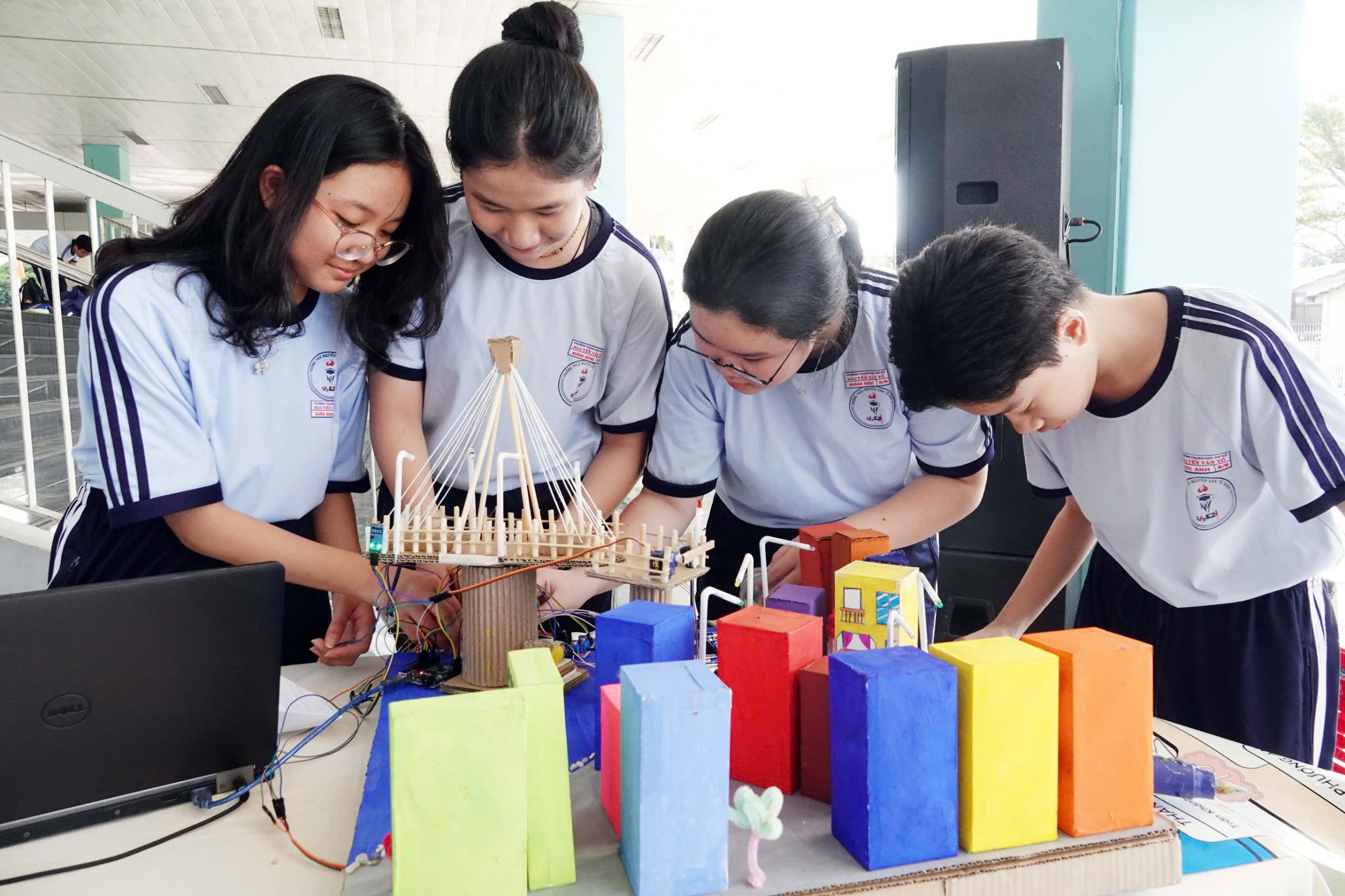
Schools also need to help students self-assess and test their own abilities, strengths, and conditions for vocational training and participating in the labor market in a positive and appropriate manner.
PHOTO: DAO NGOC THACH
C NEW PROGRAM: T OR WITH LIFE SKILLS
In the past 3 years, with the 2018 General Education Program, vocational training has no longer been a subject in the program; instead, it is life skills education and career guidance. Principals of many schools said that their schools have improved the previous vocational teaching methods to help students acquire more necessary skills for real life. Students have also begun to approach this subject with a more positive attitude.
Some schools have made cooking, photography, and handicrafts life skills subjects with systematic and practical investment, so students are more interested.
Therefore, Mr. Huynh Thanh Phu emphasized: "The Ministry of Education and Training's decision to remove the regulation of adding bonus points for general vocational certificates when considering graduation from 2025 is not only in line with the program but also aims to reform and improve the quality of education."
According to Mr. Phu, first of all, this ensures fairness, because previously, the incentive points for vocational certificates helped many students have an advantage in graduation but did not accurately reflect academic ability and general knowledge. Therefore, removing this point helps create more fairness among students.
In addition, the new scores of the high school graduation exam from 2025 will help improve the quality of vocational skills for students. The elimination of extra points is part of an effort to encourage students to focus on vocational training with the goal of truly improving skills, instead of just getting points; guiding students to choose a career based on their passion and real needs, not for the benefit of points. This contributes to training higher quality human resources.
"This decision is part of the roadmap for general education reform, focusing on developing students' capacity and qualities, instead of chasing unnecessary score criteria; helping vocational schools change their infrastructure, curriculum, and methods to ensure practical vocational skills for students," said Mr. Phu.
Mr. Huynh Thanh Phu, Principal of Bui Thi Xuan High School (District 1, Ho Chi Minh City)
Schools help students learn and predict
and choose the right career
Career guidance activities aim to train and guide students to choose a career that is suitable to the development requirements of society, and at the same time suitable to the physical strength and aptitude of the individual. Carrying out career guidance is a necessary requirement of education to realize the goals, principles and content of education; contributing positively and effectively to the assignment and rational use of human resources.
According to Mr. Tran Anh Tuan, Vice President of the Ho Chi Minh City Vocational Education Association, the trend of international integration and the context of the 4.0 industrial revolution have profound impacts on education and life. There are positive impacts as well as many difficulties for high school graduates in orienting their future careers. Therefore, in high schools, students need to raise their awareness of the trend of international integration and the context of the 4.0 industrial revolution to have a deep, accurate, and comprehensive understanding of the trends for future workers, thereby helping them prepare mentally and have enough correct data. Schools help high school students learn and forecast human resource needs so that they can understand, evaluate, and estimate human resource needs for future occupations. Help students demonstrate their awareness, skills, attitudes, worldviews - outlooks on life, accurate self-assessment (dreams, aspirations, skills...) and ability to meet the needs of society. On that basis, each high school student must realize that making a career decision is their own responsibility and cannot be the job of their parents, family or society.
At the same time, according to research by the Ho Chi Minh City Vocational Education Association, the issues that need attention in career guidance activities for students in schools are to orient students' attention to the socio-economic occupations that the locality and the whole country need to develop. Help students be interested in learning and studying the occupations that the locality and society need.
Schools also need to help students self-assess and test their own abilities, strengths, and conditions for vocational training and participating in the labor market in a positive and appropriate manner.
Source: https://thanhnien.vn/bo-cong-diem-nghe-vao-ket-qua-tot-nghiep-thpt-phu-hop-chuong-trinh-giao-duc-moi-185241105223849516.htm
























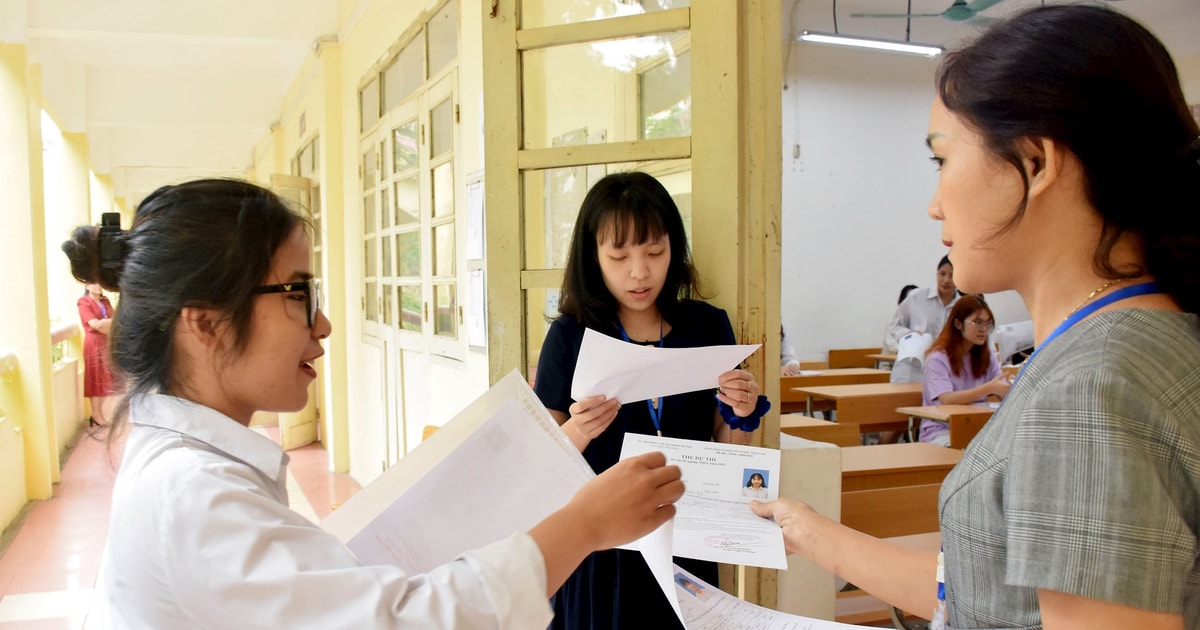

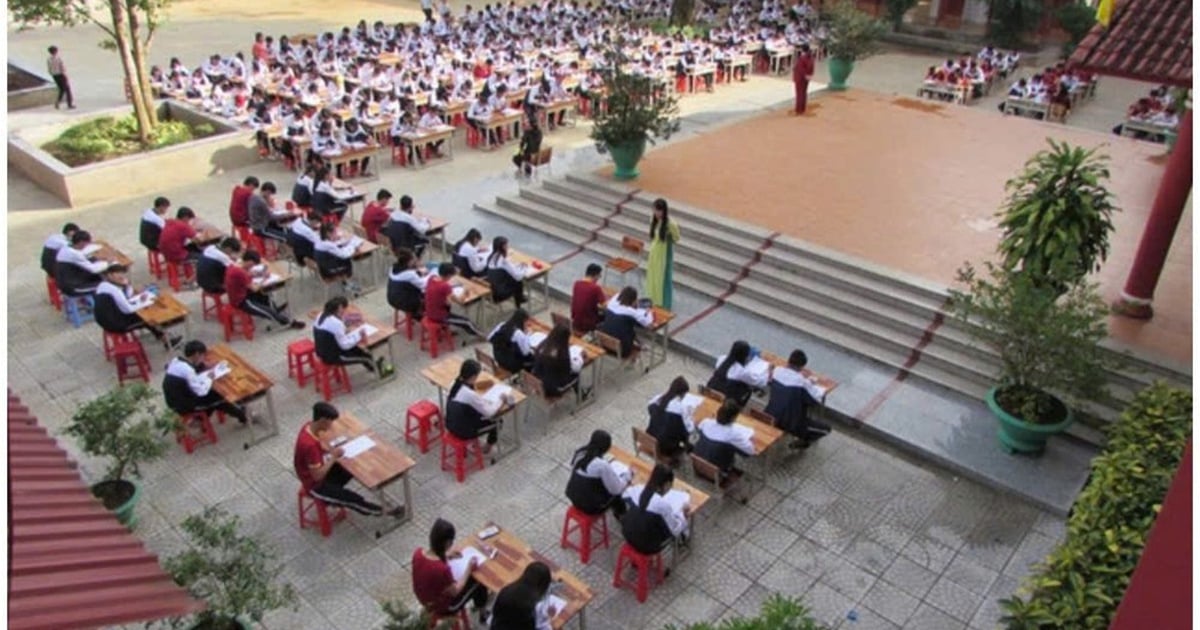

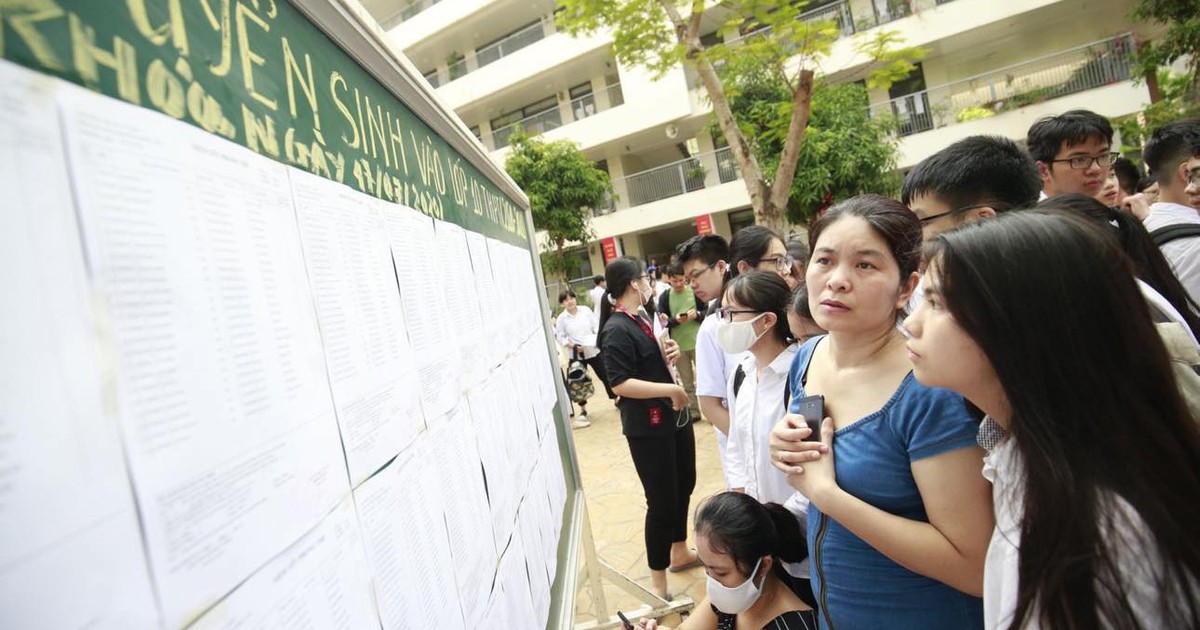
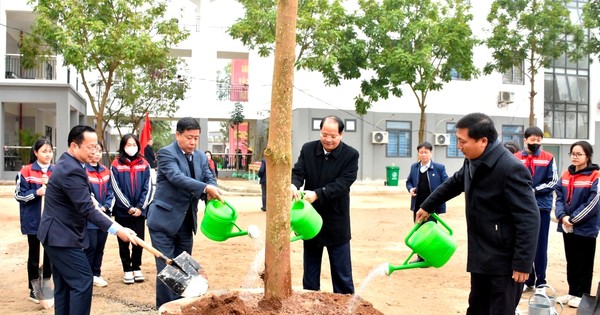

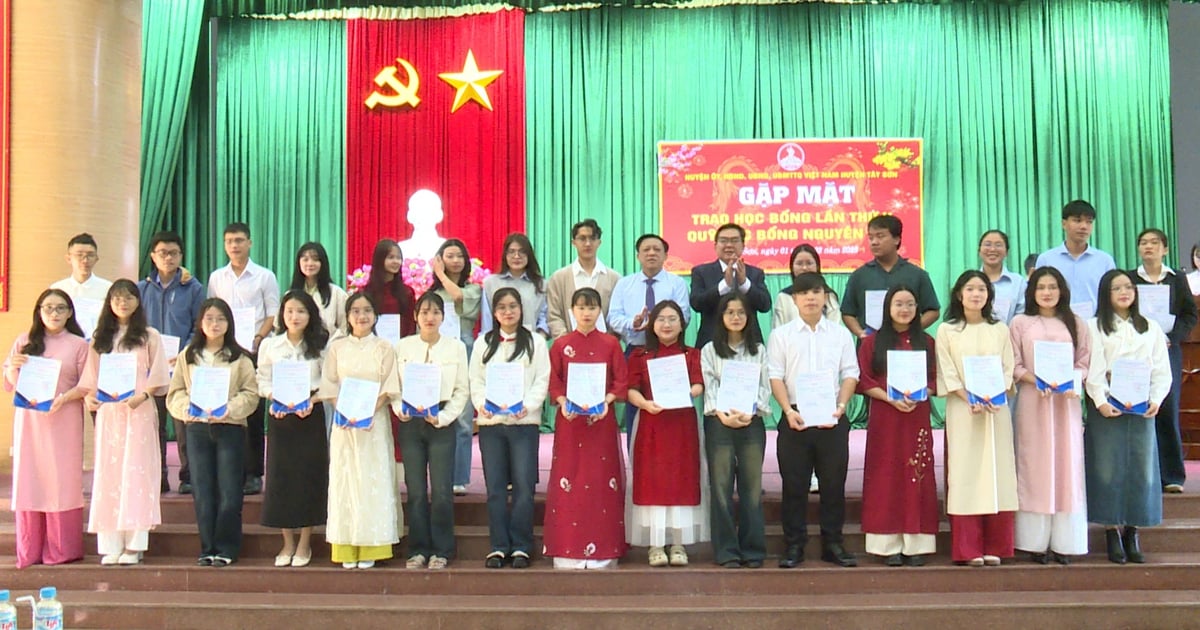
























Comment (0)